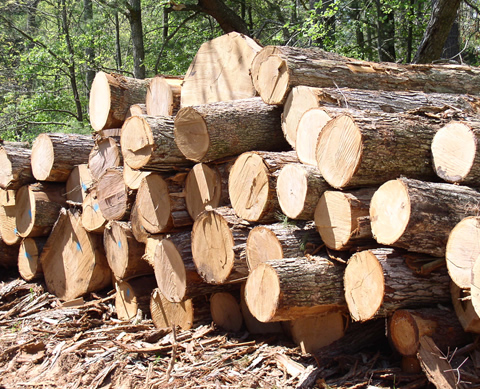Upper West REGSEC cancels permits for 24 rosewood salvaging companies
 The Upper West Regional Security Council (REGSEC) has decided to cancel the permits of 24 companies that submitted permits to salvage rosewood in the region.
The Upper West Regional Security Council (REGSEC) has decided to cancel the permits of 24 companies that submitted permits to salvage rosewood in the region.
The decision came after it realized that any time the companies were asked to come and salvage rosewood, they rather came and paid people to cut down more of the trees.
Mr Amidu Chinnia Issahaku, Deputy Upper West Regional Minister, made this known at a press briefing immediately after a prolonged REGSEC meeting in Wa on Wednesday.
He said as part of efforts to clamp down on the concern in the region, a 14 member taskforce has been constituted to go round the region and stop people from cutting down the trees to bring to an end the massive deforestation that is ongoing in the region.
“The Upper West Region has a very fragile ecology – our vegetation is not that developed and you know vegetation has a linkage with the pattern of rainfall”, he said.
Mr Issahaku said majority of the people in the region were employed in the agriculture sector hence the need to guard against environmental degradation and deforestation.
He said the 14 member taskforce chaired by Deputy Superintendent of Police, Mr Clement Ali had the mandate to reverse and stop the lifting of rosewood and other logs from the Upper West Region and prevent the felling of fresh rosewood and any other trees in the region.
The taskforce would also impound trucks carrying rosewood as well as other logs and confiscate it as well as prosecute the offenders; conduct periodic checks in the districts to ascertain the situation and submit quarterly reports to REGSEC and any other duties assigned to it.
The Deputy Regional Minister said the Municipal and District Assemblies in the region have also been directed to see how they could lift all wood that were lying in the bush for the REGSEC to make the final conclusion on the matter.
Mr Issahaku said government has invested heavily into the fertilizer subsidy and farmers have the opportunity to buy more and expand their farms, but because of the poor rainfall pattern, farmers may still experience poor yields.
Source: GNA
